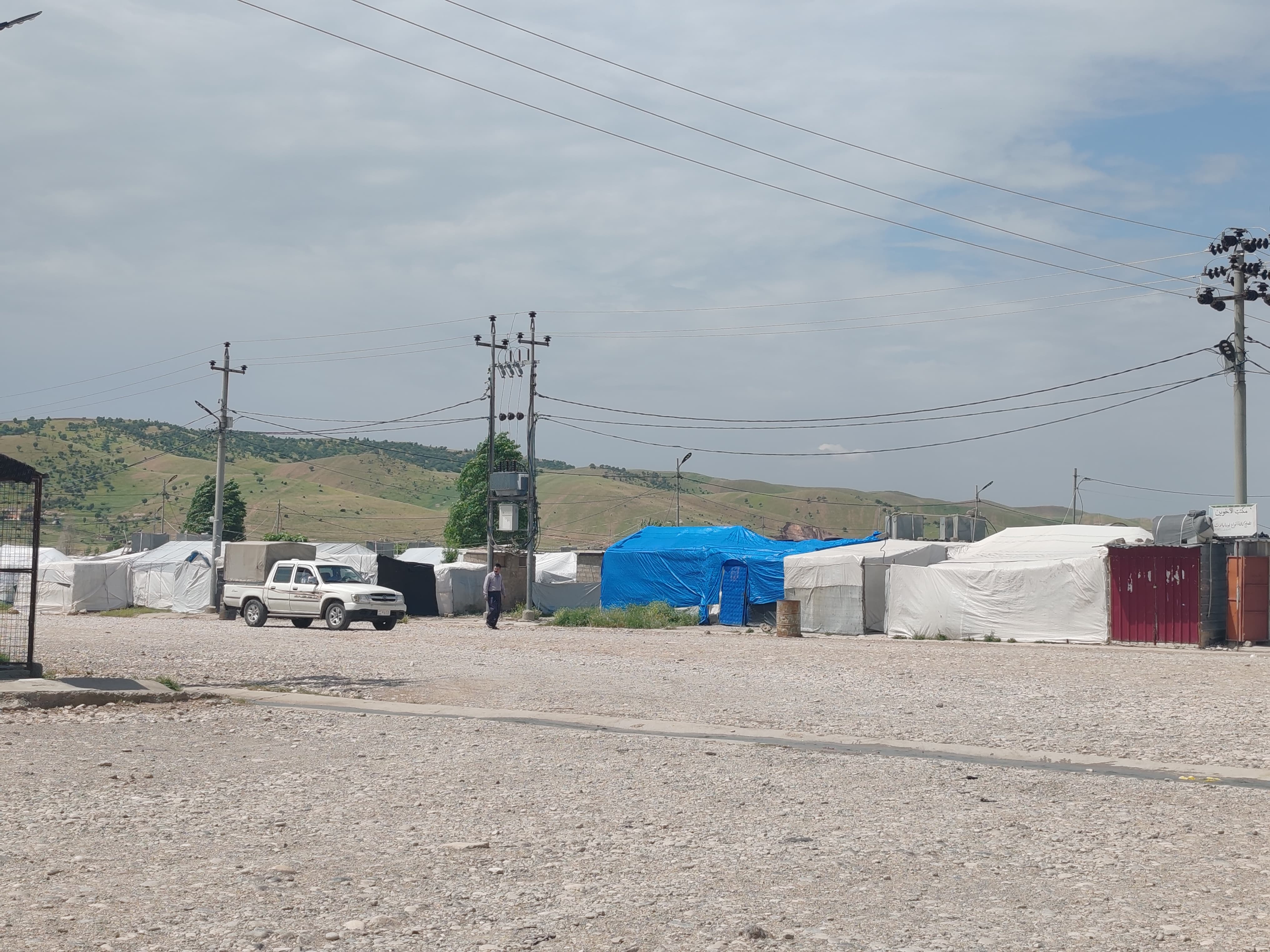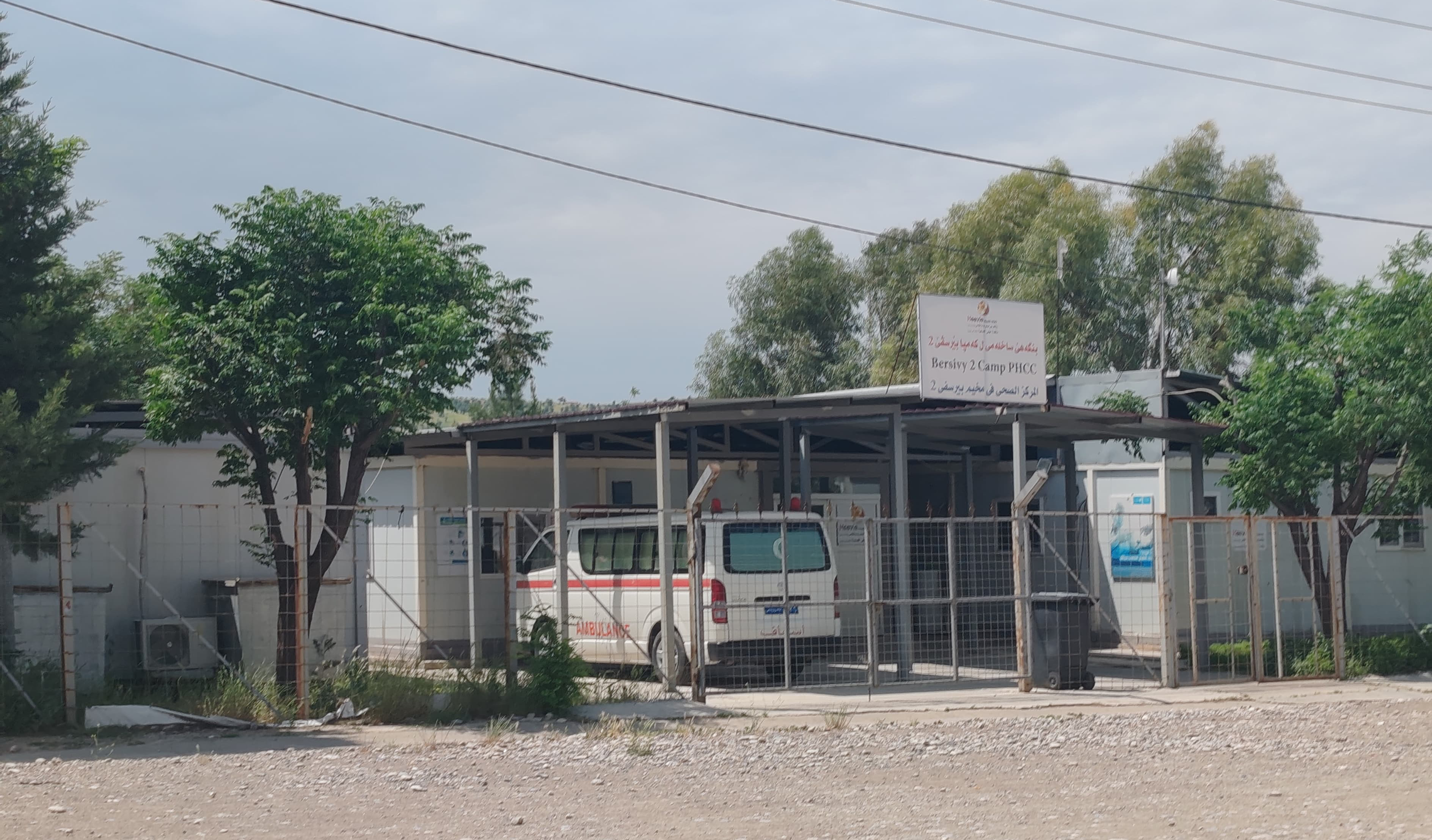Health centers were closed in a number of camps for the Internally Displaced Person IDPs, while in other camps were unable to provide the necessary services due to the lack of support they were receiving from local and international organizations.
According to KirkukNow's observations, out of a total of 15 health centers inside the camps for the displaced in Dohuk Northern Province, three centers closed their doors to the displaced.
“We suffer a lot from the lack of health services. Some people suffer from chronic diseases and are forced to go to the Zakho center to receive treatment,” Zaid Haider, a displaced person residing in the Bersev camp in the Zakho Independent Administration, told KirkukNow.
There are about 10,000 IDPs in both the Bersev 1 and 2 camps, most of whom are Nineveh residents, specifically from war-torn Shingal (Sinjar), home for the non-Muslim Ezidi community.
According to Zaid, before the closure of the health center in the camp, health services were “very good,” but the situation has changed now, such that it is difficult for the displaced person to access health services unless he has a vehicle for transportation.
According to KirkukNow's observations, the closure of health centers in the camps is due to the lack of support provided by international and local organizations, and this coincides with the Iraqi government intensifying its efforts to close the camps permanently before the end of July 2024, based on a decision from the Iraqi Council of Ministers.
The IDPs residing in the camps of the Iraqi Kurdistan Region IKR have to return to their home towns ahead of July, and in return they will receive a grant of four million Iraqi dinars IQD (USD2,700), in addition to providing household supplies, job opportunities, and compensation based on the Council of Ministers’ decision last January regarding the return of the displaced, which includes several measures, as increasing financial aid from 1.5 million IQD to four million.
There are more than 600,000 IDPs in the IKR, some of whom are distributed among 26 camps, 16 of which are in Dohuk Northern Province, housing 26,000 families, most of whom are Nineveh residents, especially from the Ezidi component of Shingal District, according to statistics from the Joint Crisis Coordination Center of the Kurdistan Regional Government KRG.

Bersiv camp in Zakho, home for thousands of Internally Displaced Person IDPs, Dohuk, May 2024. Laith Hussein.
The decision of the Council of Ministers resulted in various demands from the Federal Court, while the Minister of Displaced Immigration called on the KRG to implement the decision and shut the IDP camps. In return, a complaint was registered demanding the cancellation of the decision to close the camps, and the lawsuits are scheduled to be resolved next June.
Pir Dayan Jaafar, Director of the KRG Department of Migration, Displacement, and Crisis Response in Dohuk, told KirkukNow, "Currently, the Regional Government provides health services to the displaced, but there are no plans to reopen the centers that were closed because Iraqi government wants the displaced to return."
The displaced people in the Kurdistan Region suffer from many problems, including poor helathcare, education, the absence of financial aid and the scarcity of drinking water due to the end of the work of most international organizations in the camps.
Previous follow-ups by (KirkukNow) showed that some of the displaced are reluctant to return due to the unstable security situation, the lack of services and the lack of job opportunities in their areas.
Iraq’s healthcare system which was once one of the most advanced in the region now is in serious crisis. There’s a shortage of drugs and the medical staff to administer it. Over the past three decades the country has been ravaged by Iraqi-Iran war, Saddam Hussein’s invasion of Kuwait, ousting of Saddam regime followed by sectarian violence, the war against al-Qaeda and the rise of Islamic State in Iraq and Syria ISIS.
The political chaos after 2003, pushed an estimated 15,000 out of 52,000 registered Iraqi doctors to leave the country. The young student doctors primarily seek training and life abroad rather than permanent state employment.
In 2019, the Iraqi government allocated just 2.5% of the state’s $106.5 billion budget to its health ministry, while security forces received 18% and the oil ministry 13.5%. The same was true for 2014.
Over the past decade, data from the World Health Organization WHO shows that Iraq’s central government has consistently spent far less per capita on healthcare than its much poorer neighbors - $161 per citizen each year on average, compared to Jordan’s $304 and Lebanon’s $649, a report by Reuters found.





